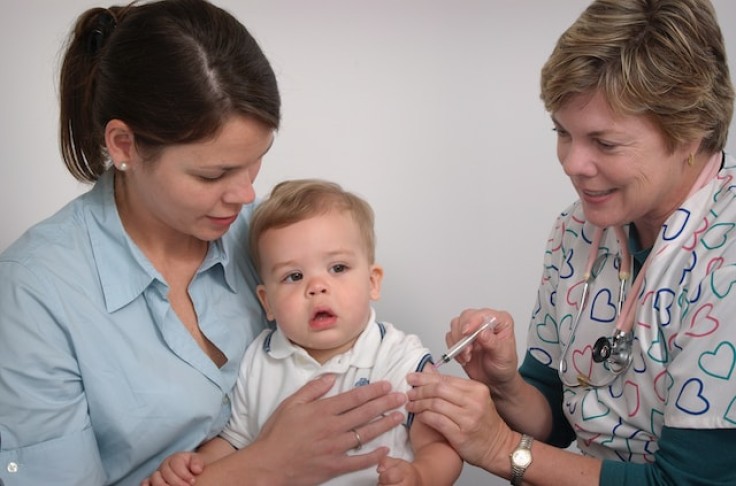
In a significant development for infant healthcare, the US Food and Drug Administration (FDA) has approved nirsevimab as a powerful tool in the fight against respiratory syncytial virus (RSV). RSV is known to be the leading cause of hospitalization among infants under one year old in the United States. The approval of nirsevimab provides parents and pediatricians with a new option to protect babies from this lung-attacking virus.
Passive Immunity: How Nirsevimab Works Differently from Vaccines
Unlike traditional vaccines, nirsevimab works by providing passive immunity rather than stimulating the production of antibodies by the body. It is a ready-made antibody that binds to the RSV virus, preventing it from infecting healthy cells. This single injection is administered to infants before the RSV season begins, which typically peaks during the fall and winter months.
According to CNN, the FDA's approval also allows for a second injection for infants up to 24 months of age who remain vulnerable through their second RSV season.
Dr. John Farley, the director of the Office of Infectious Diseases in the FDA's Center for Drug Evaluation and Research, emphasized the urgent need for products that can help reduce the impact of RSV disease on children, families, and the healthcare system. RSV can cause serious illness in infants and children, leading to numerous emergency department and physician office visits each year.
The Advisory Committee on Immunization Practices (ACIP), a group of experts advising the US Centers for Disease Control and Prevention (CDC) on vaccine recommendations, will review and provide their recommendations on nirsevimab's use. Once the CDC approves nirsevimab, it will become the second antibody available to protect young children against RSV, complementing the existing antibody palivizumab (Synagis), which is primarily used to protect vulnerable premature infants under six months of age.
Compared to palivizumab, nirsevimab offers several advantages. It has a longer duration of effectiveness, lasting four to six months in the body, and is believed to be more potent, per The New England Journal of Medicine.
Nirsevimab is approved for use in all infants, including those born full-term and in good health. This is a significant step forward, as RSV can affect all babies, not just those with certain health conditions. Dr. Rachel Dawkins, medical director of the pediatric and adolescent medical clinics at Johns Hopkins All Children's Hospital, expressed her excitement about having an immunization like nirsevimab to prevent serious RSV-related illnesses in infants.
It is worth noting that nirsevimab may not be the only option available for preventing RSV infections this fall. The FDA is currently considering the approval of a vaccine for pregnant women, developed by Pfizer, that would provide protection to newborns. This vaccine allows mothers to produce antibodies that pass through the placenta and safeguard the fetus. If approved, it would offer immediate protection to babies upon birth and provide broader-spectrum immunity. Both approaches, nirsevimab and the maternal vaccine, could work together to enhance protection against RSV.
The potential coexistence of both preventive products will be carefully considered by the ACIP committee. Dr. Michael Greenberg, North American medical head of vaccines for Sanofi, the company marketing nirsevimab, highlighted the flexibility in the timing of nirsevimab administration. This flexibility, combined with its potential to offer protection to all infants, makes nirsevimab a groundbreaking option in the fight against RSV.
Safe and Well-tolerated: Nirsevimab Therapy Demonstrates Favorable Safety Profile
Clinical trials leading to the approval of nirsevimab demonstrated its effectiveness. It was found to be approximately 70% effective in reducing the risk of infants needing doctor visits for RSV and about 78% effective in preventing RSV-related hospitalizations when compared to a placebo, according to FDA analysis.
With these results, nirsevimab has the potential to prevent one RSV hospitalization for every 56 infants treated. While antibodies like nirsevimab may come at a higher cost, the benefits of keeping infants out of the hospital outweigh the financial considerations.
In studies, nirsevimab therapy has been generally safe and well tolerated. A small percentage of infants experienced skin reactions, but these reactions were temporary and resolved with treatment. The use of nirsevimab offers hope in the ongoing battle against RSV, a virus that causes breathing difficulties in infants, often leading to hospitalization.
RSV is a serious concern, causing significant swelling and secretions in infants' breathing tubes, making it difficult for them to breathe. It is the leading cause of hospitalization in infants up to one year old. While most babies recover after two to three days of supportive care, some cases can be fatal. RSV not only affects young children but also sickens and kills elderly adults each year. The development of vaccines targeted at seniors is also underway.
Cheryl Meany, a participant in an early study testing nirsevimab, witnessed the positive impact of the antibody on her twin girls. Despite being born prematurely, they remained healthy and free from RSV-related illnesses. Her experience underscores the potential benefits of nirsevimab in preventing severe RSV infections and enabling infants to grow and thrive.
As medical advancements continue to address RSV prevention, the approval of nirsevimab marks a significant milestone in the fight against this respiratory virus. With the availability of nirsevimab and the potential introduction of the maternal vaccine, healthcare providers can better protect infants from RSV and reduce the burden on healthcare systems. The ultimate goal is to ensure that infants have a healthier start in life and are shielded from the harmful effects of RSV.
Read also: FDA Approves GSK's Arexvy: First Vaccine to Protect Against Life-Threatening RSV in Elderly